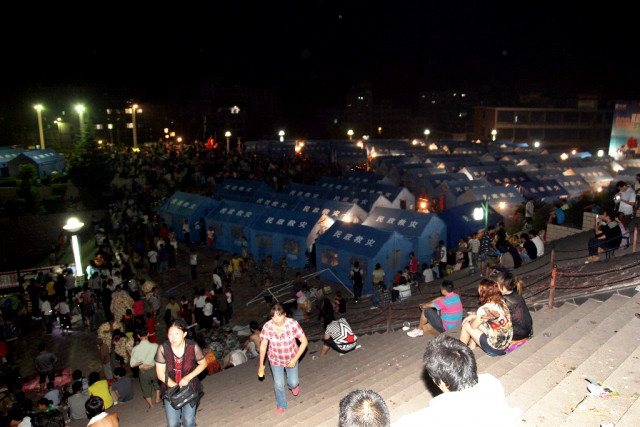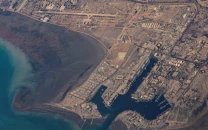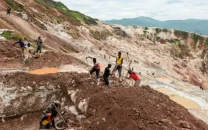China quakes kill at least 80
Toll could climb further as impassable roads, downed communications making it difficult to collect information.

China quakes kill at least 80
The Xinhua news agency quoted a spokesman with the provincial civil affairs department as warning the toll could climb further because impassable roads and downed communications were making it difficult to collect information.
An earlier report from Friday's quakes had said 67 people were killed and 731 injured when the tremors struck on the border of Yunnan and Guizhou provinces, toppling houses and sending panicked crowds onto the streets.
Xinhua did not give an updated figure for the number of people injured when the twin 5.6-magnitude quakes, which were followed by a series of aftershocks, struck the poorly developed region.
Southwest China is prone to earthquakes. In May 2008, an 8.0-magnitude tremor rocked Sichuan and parts of neighbouring Shaanxi and Gansu provinces, killing tens of thousands and flattening swathes of the province.
The Global Times newspaper said the latest tremor highlighted China's continued vulnerability to natural disasters, despite decades of rapidly improving wealth and living standards in much of the country.
"A quake as strong as Friday's... could have caused fewer or even no casualties in a more developed region," it said.
"People who have illusions about China's national strength have to wake up to the fact that many people still live in houses with similar conditions," added the editorial.
Residents described how people ran out of buildings screaming as the two shallow quakes hit an hour apart around the middle of the day.
Television footage showed roads strewn with fallen bricks and rocks in Yunnan province's Yiliang county, which appeared to be worst hit.
Authorities were sending thousands of tents, quilts and coats, and Premier Wen Jiabao was also heading to the area, Xinhua said.
Footage on state television network CCTV showed hundreds of people crowded into a sports field in Yiliang.
People took cover outside after the first quake and did not return indoors, said a man surnamed Xia reached by phone. "Lots of people are outside because they fear aftershocks," he said.
"I was walking on the street when I suddenly felt the ground shaking beneath me," posted one witness on Sina Weibo, a microblog similar to Twitter. "People started rushing outside screaming, it still scares me to think of it now."
The US Geological Survey said the first quake struck at 11:20am (0320 GMT) at a depth of around 10 kilometres (six miles), with the second quake around an hour later.
The earthquakes cut off electricity and triggered landslides, blocking roads, Xinhua said.
Li Fuchun, the head Luozehe township, identified as the epicentre, told Xinhua: "Roads are blocked and rescuers have to climb mountains to reach hard-hit villagers."
Peng Zhuwen, a worker at a zinc mine in Luozehe, added: "It is scary. My brother was killed by falling rocks. The aftershocks have struck again and again. We are so scared."
Yunnan's civil affairs department said that 6,650 houses had been destroyed and 100,000 people evacuated. There were also fears of disease after thousands of cattle were killed when sheds caved in.
Rocks as big as four metres (13 feet) across crashed into mountain roads, crushing houses and cars, Xinhua said.
Corner cutting in construction projects leading to shoddy buildings, especially schools, was blamed for the death toll being as high as it was in the 2008 Sichuan quake.
The Global Times said that after the latest quake, authorities should emphasise safety and sustainability in future developments.
"Many would prefer bigger, rather than safer but more expensive, houses or apartments.
"To take the time and invest money in the prevention of natural disasters, which are unpredictable and are unlikely to occur, does not seem like a persuasive proposal to many in China," it concluded.






1721969212-0/BeFunky-collage]-(35)1721969212-0-208x130.webp)












COMMENTS
Comments are moderated and generally will be posted if they are on-topic and not abusive.
For more information, please see our Comments FAQ